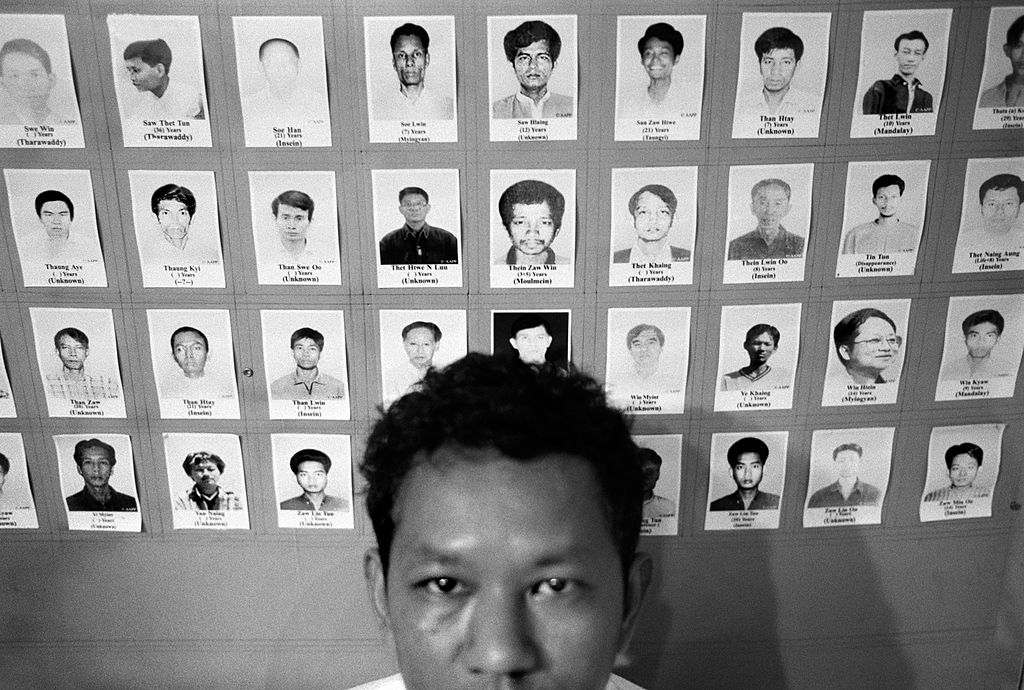
As an activist under the military government in Myanmar, I spent most of the 1990s in prison, including more than a year in solitary confinement. For 23 hours and 40 minutes each day I was kept in a small, 8-by-12-foot cell with a mat, a bowl for a toilet and food provided by my family. I was not allowed to use a pillow because it was deemed a luxury. I only saw my family for 15 minutes every two weeks. Most days passed slowly without seeing another human being. I was bored. I was lonely. But I survived.
Now, because of the COVID-19 pandemic, many people around the world, even those who have never experienced the iron fist of military rule, are faced with long stretches of time in quarantine, or in self-isolation. More than a third of the world is now under some form of lockdown, while in some places soldiers patrol the streets and curfews are being implemented to enforce social distancing. The coronavirus knows no national borders, no religion, no ideology. It affects us all.
Being told to stay in the comfort of your own home is vastly different than being handcuffed and thrown behind bars. Today, we have smartphones, Facebook, Netflix, podcasts and online grocery deliveries. I had virtually no contact with the outside world. I was not even allowed to read or write.
But there are still many similarities—particularly if you are quarantined or self-isolating alone for an indefinite period—including the anxiety of not knowing how long the situation will last, and the daily dread of wondering whether you will survive the ordeal. When you lose your freedom, you feel fear, hopelessness and an inability to be useful. You feel as if you can’t protect your family, your loved ones or even yourself. After that, you may lose your confidence.
Here are some basic tips and advice I can offer based on my experience.
Accept your reality
I didn’t want to live in a prison cell alone, but I had no choice. The military regime wanted to break my spirit by keeping me confined and isolated. But they couldn’t stop me from coming up with my own projects and activities.
Once I accepted that I was going to be in jail for a long time, I made a decision to study English. The prisoner in the next cell could speak it, so whenever the guards went away, I’d ask him to shout one or two sentences to me. I’d scrawl the words on concrete and memorize them.
Eventually, I approached a sympathetic prison guard and asked him to smuggle in a dictionary one page at a time. He did, but after memorizing the page, I had to eat the paper to avoid detection. Over time, I ate many pages of that dictionary.
Some of my friends composed songs, poems, novels and articles on the concrete floors of their cells before memorizing and then erasing them.
Sign up for our daily coronavirus newsletter by clicking on this link, and please send any tips, leads, and stories to virus@time.com.
Keep active
When I was in jail, I didn’t think about my release date because it was one of many things out of my control. But I could try to be healthy. I walked up and down my cell for many hours a day.
Take it from me: Doing exercise will help your physical and mental health. Exercise! If you can, walk at least 6,000 steps a day. If you aren’t able to do that, think of another way to stay active. Practice meditation or try yoga.
Stay positive
Most people are able to use the internet to reach family and friends. But the ease of internet access—which we didn’t have in prison—is a double-edged sword because you are bombarded with terrifying news. While staying informed is important, try to read something positive to create more of a balance. Instead of news, try calling a friend. Do something productive, whether it is small or big. Clean your house. Cook a meal.
Maintain perspective
I am sure that even though we find the situation difficult, there are many people around the world whose suffering is much worse than ours: victims of domestic violence, refugees, people displaced from their homes, political prisoners and prisoners of conscience.
This is true in my own country. Even though Myanmar has undergone many positive political changes in the last few years, there is still much pain and suffering. While many countries have released prisoners during the coronavirus crisis, Myanmar has yet to do the same. Instead, the authorities are continuing to arrest and imprison people—human rights defenders, journalists, and activists—simply for speaking out.
We should all use this time to think about what others are going through and try to help raise awareness about their plight.
More Must-Reads from TIME
- How Donald Trump Won
- The Best Inventions of 2024
- Why Sleep Is the Key to Living Longer
- Robert Zemeckis Just Wants to Move You
- How to Break 8 Toxic Communication Habits
- Nicola Coughlan Bet on Herself—And Won
- Why Vinegar Is So Good for You
- Meet TIME's Newest Class of Next Generation Leaders
Contact us at letters@time.com